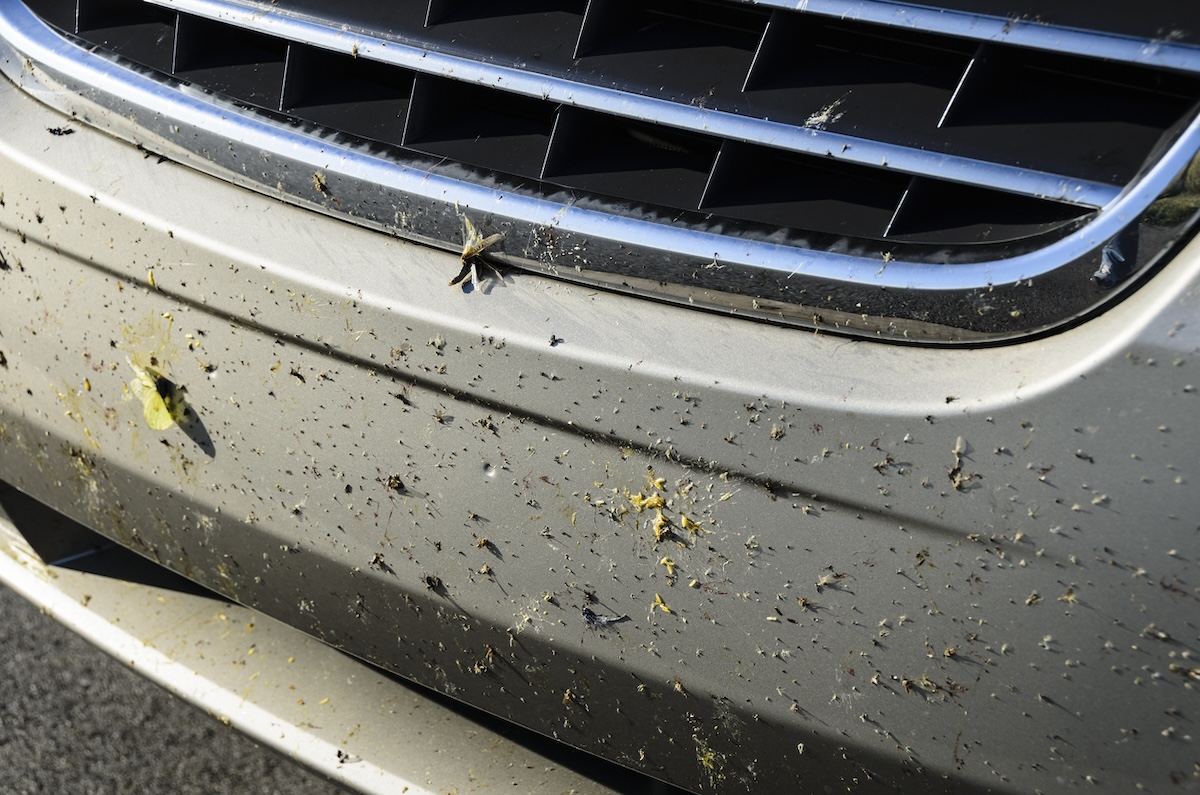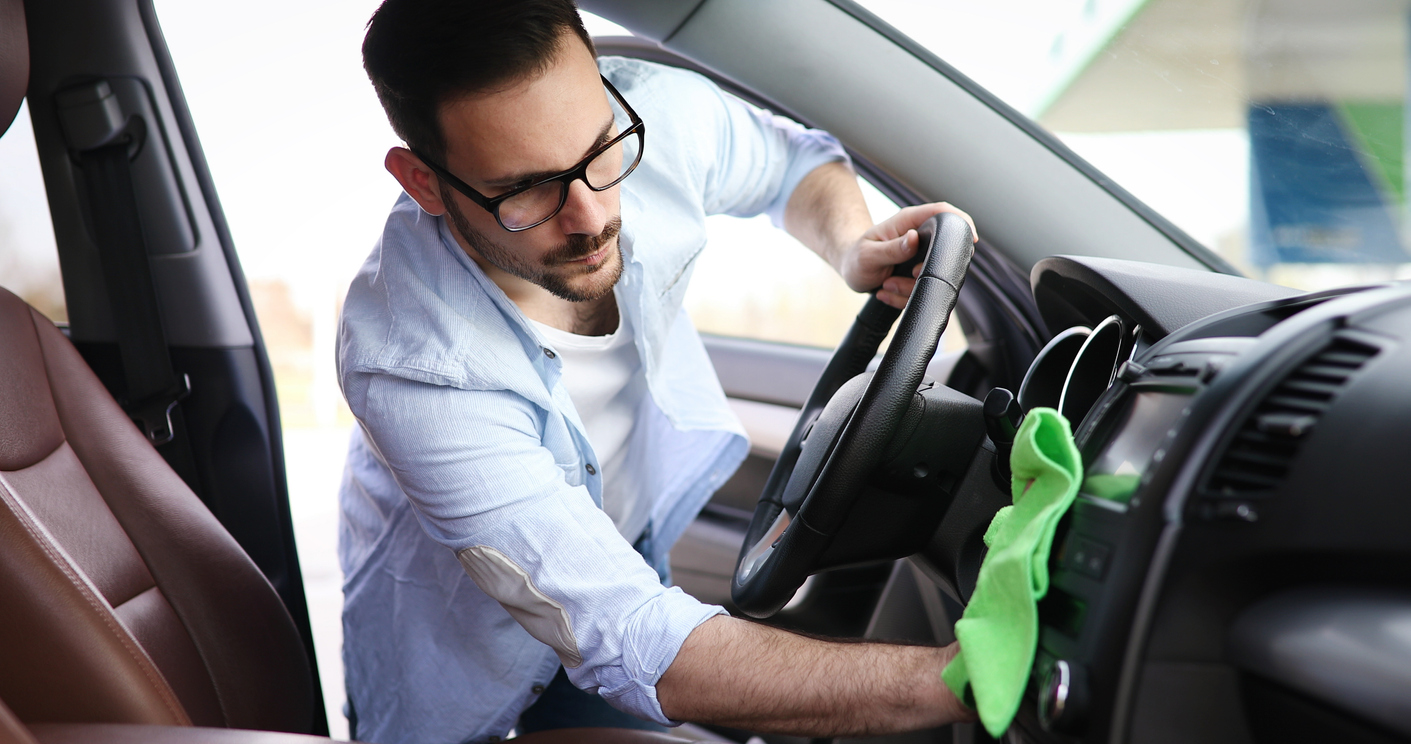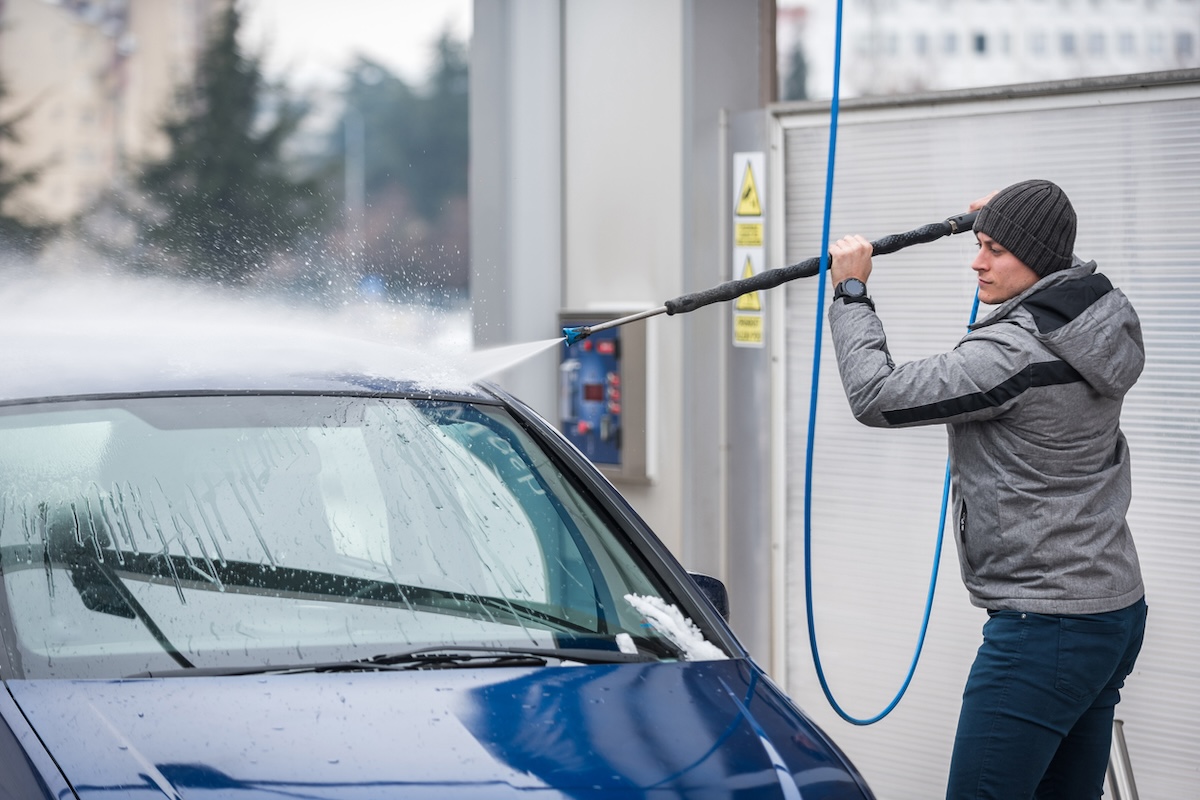We may earn revenue from the products available on this page and participate in affiliate programs. Learn More ›
Q: I just purchased a new car and want to put more effort into proper maintenance. I already purchased a service plan for keeping up with oil changes and tire rotations, but I know that I also should wash it more often than I washed my old car. How often should you wash your car? What else should I consider to protect it and keep it looking its best?
A: You’re right to prioritize taking care of your new car. As Chris Estrada, the CEO and founder of Nationwide United Auto Transport, shares, “maintaining vehicle cleanliness critically influences [a car’s] lifespan and aesthetics.” However, there is no set answer to the question of how often should you wash your car. Estrada explains that vehicle maintenance, including cleaning, depends on several factors. Read on to learn more about how often experts recommend washing your car and what else you can do to keep it clean and well maintained.
Experts recommend washing cars every 2 weeks to once a month.
Car care experts recommend frequent washes to keep the car looking its best and to prevent it from being damaged by dirt, acid, salt, and other elements. Whether you’re washing a car at home or bringing it to a car wash, aim to clean it at least once every month, if not twice per month.
Washing your car every 2 weeks might seem excessive. However, regular washing does more than just make the car sparkle and shine. It is an important part of maintaining a vehicle. Clearing grime like salt and dirt, off of a car helps protect the paint. Clean paint is less likely to chip or fade than paint that is covered with gunk. Moreover, letting salt or other debris accumulate over your car’s finish can increase the chances of corrosion or rust forming.
Regular washing also can prevent water spots from covering the windows or paint of the car. Beyond their unsightly appearance, water spots can deposit minerals on the glass or paint, which could cause damage to these surfaces. Always use car-drying towels after washing a car to prevent water spots from forming.

How often to wash a car depends partly on where you live.
While experts generally recommend cleaning cars every 2 to 4 weeks, the specific needs of your vehicle can vary based on where you live, and even what season it is. For example, if you live in a coastal region with higher levels of salt in the air or in an area that gets lots of winter snow with salt-treated roads, more frequent washes might be necessary. As mentioned above, salt can be corrosive, so you’ll want to clear it from your vehicle quickly to minimize the chances of rust forming. Keep in mind that salt can damage more than just the paint of a car. You’ll want to make sure to clean the headlights, windows, and undercarriage as well.
If you live in an area where pollution is prevalent—whether from smog, acid rain, or wildfire smoke—cleaning your car more frequently will also be a good idea. All of these pollutants can damage the paint finish of the vehicle. Washing them away will help protect your car’s exterior from damage or rust.
RELATED: 17 Things You Should Never Leave in a Cold Car
Where you park a car affects how often it needs cleaning.
Where you live isn’t the only factor that can impact how regularly you’ll need to wash your car, Estrada explains. “If a car is often parked under trees, it may get bird droppings or sap, necessitating more frequent washes.” Both sap and bird droppings can damage car paint. Sap is so sticky that it can adhere to a vehicle. If not removed promptly, the drops of sap start to shrink, causing their bond with the paint to strengthen. Bird droppings are more than just an eyesore on a car’s surface. Their contents are acidic and can eat away at the finish of the vehicle.
“The same applies if your vehicle is frequently exposed to construction dust,” says Estrada. Cars that are parked near construction sites or that become covered with pollen, bugs, or other debris will necessitate more frequent washes than those that are parked in a garage.

It’s a good practice to wash your car after a long road trip.
Heading out on the open road for a trip can be exciting. Once you’re back from your adventures, however, it is a good idea to get a professional car cleaning or to at least wash the vehicle at home. After all of that driving, the vehicle is likely to need a good cleaning. Remove any dust and dirt, dead bugs, and other grime from the car’s exterior to protect it against damage. Don’t forget to clean up the inside of the car as well, especially if you left behind crumbs from snacking behind the wheel.
Experts recommend waxing once every 3 months.
Washing cars every 2 to 4 weeks is only one key part of protecting the finish. You must also wax them. Estrada says, “I recommend waxing your car every 3 months to keep it looking glossy and provide a protective layer against environmental elements that could damage the paint.” A thin layer of wax goes a long way in preventing salt, rain, UV rays, sap, and bird poop from causing as much damage. Waxing also can help extend the time between washes.
Estrada highlights another benefit of waxing a car. “Waxing also helps in minimizing minor scratches and prevents paint discoloration,” he explains. By preserving the car’s finish, you’re also taking steps to maintain a higher resale or trade-in value for your car. Just remember, you should never wax a car before washing it. Wash the vehicle first to get rid of any grime or contaminants on the surface and to provide a clean, blank slate to wax.
RELATED: We Tested the Top Handheld Vacuums, See Our Favorite for Quickly Cleaning Small Messes

Opt for manual rather than automatic car washes.
When you’re deciding how to clean your vehicle, you have two main choices: an automatic or a manual car wash. According to Estrada, both manual and automatic car washes have their pros and cons, but it might come down to personal preference. “While automatic car washes are quick and convenient, they may not clean as thoroughly as manual washes and can sometimes result in minor scratches. Manual washes, on the other hand, are gentler and more thorough but require more time and effort,” Estrada says.
If you’re going to try hand-washing a car, you’ll need the right tools to help you clean the windows, body, and other components of the vehicle. Below are a few car wash essentials to stock in your cleaning kit:
- Car shampoo
- Bucket
- Washing mitts
- Microfiber towels
- Wheel and rim brush
- Tire shine spray
- Hose nozzle
- Dusters for the interior
- Detailing brushes

Clean the interior while you’re at it.
One of the best car washing tips is to make sure you don’t neglect your vehicle’s interior. When you clean the outside, it is always a good idea to clean the inside, too. A clean interior can protect the health of the driver and passengers, make it easier to focus on driving safely, and keep stress levels to a minimum.
To clean the interior of a vehicle, begin by throwing away any trash and putting loose items—such as children’s toys, water bottles, or phone chargers—away. Then, take the floor mats out of the car, shake off debris, and clean them with a vacuum (or a hose if they’re made of vinyl, rubber, or silicone). Use a microfiber cloth and a car-safe cleaner to wipe down the windows, mirror, dashboard, and center console. If needed, use a soft-bristled brush to clean around any cracks or crevices that are holding dust or crumbs.
Next, use a vacuum cleaner to clean the vehicle’s seats and carpets. Apply a leather cleaner and conditioner for leather seats or use an upholstery cleaner for cloth seats. If desired, sprinkle some baking soda and vacuum it up the following day to get rid of lingering odors. You may also want to hang a vehicle air freshener to keep odors at bay.


